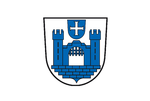House of Delegates (Wallenia)
House of Delegates Huis van Afgevaardigden | |
|---|---|
| Eerste Burgerraad | |
  Coat of arms of Wallenia | |
| Type | |
| Type | Lower House of the Parliament of Wallenia |
Term limits | None |
| Leadership | |
Speaker | Rutger Bol, Independent |
Speaker | Rutger Bol, Independent |
Leader of the Government Cacus | Bas Zwanenburg, National |
| Structure | |
| Seats | 17 MPs |
 | |
Political groups | National Unity Government (9) |
Political groups | Offical Opposition (3)
Independent Groups (4)
|
| Elections | |
Next election | Next Wallenian general election |
| Meeting place | |
| National Palace, Kronstadt | |
The House of Delegates formerly known as the Citizens Council, is the lower house in the legislature of the Kingdom of Wallenia, which is an semi-constituional monarchy. The House of Delegates has no executive power but rather a controling power . It has the power to propose laws to the King of Wallenia and his cabinet. However It cannot pass or enforce laws, which are powers reserved for the Grand Governor. It has 17 members, elected in constituencies, seven members are elected from De Waal, five from Kronstadt and two from Wallenstad and Hûnestrân and one from Strandenberg
In April 2021, King Joseph, and the former House of Citizens amended many changes to Constitution such as the establishment of an upper house. the House of Nobles and the establishement of elections in Wallenia. Only Wallenia and Rhodesia refer to their lower house as the House of Delegates.
Influence
The House of Delegates is the main legislative body of Parliament, where discussion of proposed legislation and review of the actions of the cabinet takes place. Both the Cabinet and theHouse of Delegates itself have the right to propose legislation; the House of Delegates discusses it and, if adopted by a majority, sends it on to the House of Nobles. Review of the actions of the cabinet takes the form of formal interrogations, which may result in motions urging the cabinet to take, or refrain from, certain actions. No individual may be a member of both parliament and cabinet, except in a caretaker cabinet that has not yet been succeeded when a new House is sworn in.
The House of Delegates is permitted to propose draft laws and forward them to the King, but only the King has the power to pass or enforce them. The House of Delegates does, however, have the power to interpret laws, as well as examine annual reports referred to it by state ministries and agencies. It can also advise the King on policies he submits to it, along with international treaties and economic plans. The House of Delegates is also authorized to review the country's annual budget, and call in ministers for questioning.
The influence of the House of Delegates in its present form comes from its responsibility for the Kingdom's five-year development plans, from which the annual budgets are derived, its ability to summon government officials for questioning, and its role as policy debate forum.
Under King Joseph however, the House of Delegates gained more influence. Partialy with King Joseph's reformist attidute but also partial with a huge social-democratic control. They include: defining economic, legal and political relations in Wallenia, preservation and use of its heritage and entering into alliances. The House of Delegates has the right to deploy the Royal Wallenian Army abroad, and it may restrict some constitutional rights and liberties in wartime or in cases of imminent war or following natural disasters. The House of Delegates amends the borders of Wallenia or the Constitution, enacts legislation, passes the state budget, declares war and decides on cessation of hostilities, adopts parliamentary resolutions and bylaws, adopts long-term national security and defence strategies, implements civil supervision of the armed forces and security services, calls referenda, performs elections and appointments conforming to the constitution and applicable legislation, supervises operations of the Government and other civil services responsible to the parliament, grants amnesty for criminal offences and performs other duties defined by the constitution.
Size
The House of Delegares numbers 17 members,The Constitution of Wallenia stipulates that the House of Delegates shall consist of between 10 and 20 members. It does not put any condition on the number of districts and only speaks of "several house districts". Delegates who are appointed to ministerial positions are allowed to resign and allow the next person on their party's list to take their seat. If they leave the cabinet, they are able to return to the House of Delegates to take the place of their replacement.
Representation
| Seats by Region | ||
|---|---|---|
| Region | 2018 | 2021 |
| Kronstadt | 10 | 5 |
| De Waal | 4 | 7 |
| Wallenstad | 0 | 2 |
| Hûnestrân | – | 2 |
| Strandenberg | – | 1 |
| Foreign Delegate | 1 | - |
Location
The House has met in the Royal Palace from 2019 until 2020. the Royal Palace closed its doors due to COVID-19. Meetings are now conducted in Facebook Messenger, or in Teams
Salary and qualifications
The annual salary for delegates is 600 Wallenian Pounds per year. The regular session of the General Assembly is every friday from 20:00 until 22:00 long T Candidates for office must be at least 14 years of age at the time of the election, residents of the districts they seek to represent, and qualified to vote for Delegates.